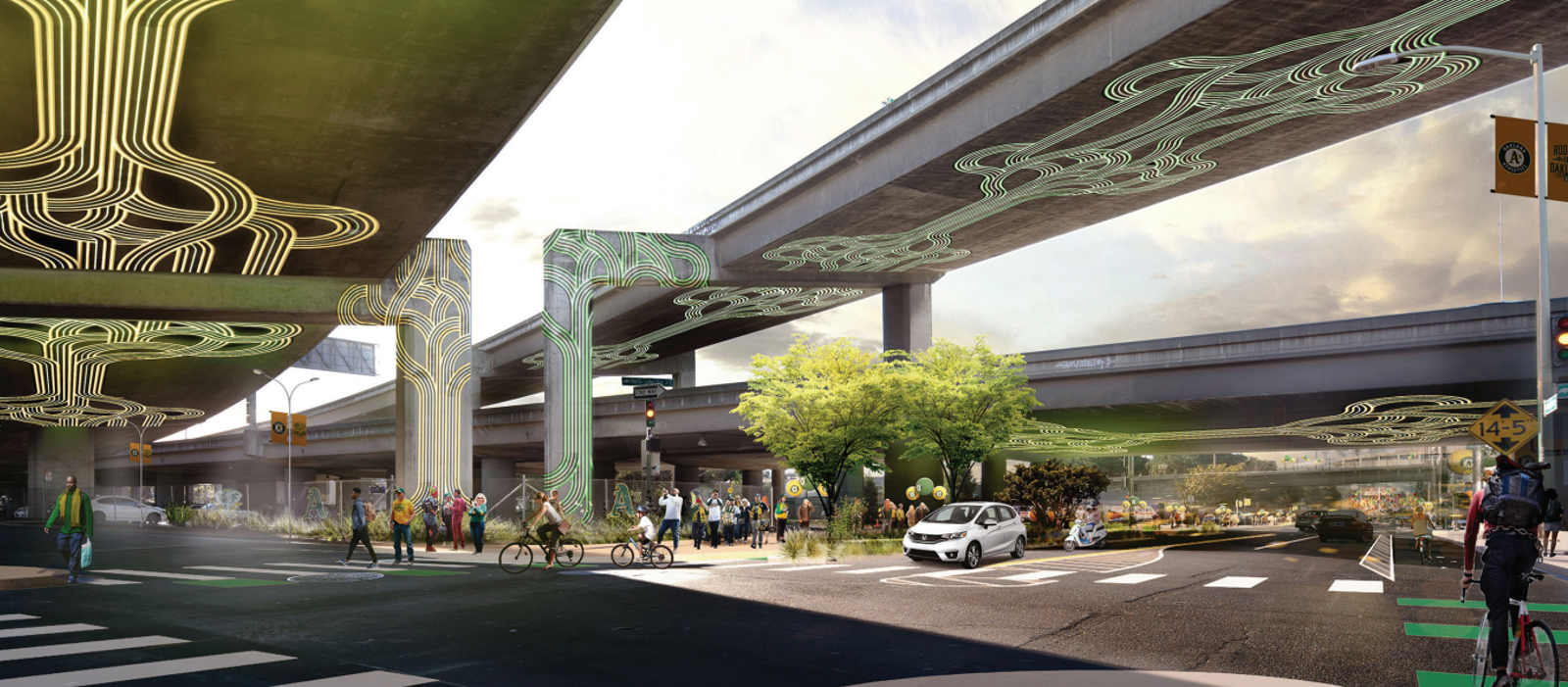Background
Like many other streets renamed “King” across the United States, Oakland’s Martin Luther King Jr. Way corridor, which is inhabited by a large percent of Oakland’s remaining Black population, suffers from underinvestment characteristic of neighborhoods facing racial and economic discrimination. Today, Martin Luther King Jr. Way is a four-lane roadway with heavy truck traffic and no bikeway. The Martin Luther King Jr. Way Streetscape Improvements aims to improve pedestrian and bicycle safety in a high priority equity community in West Oakland, Old Oakland, and the Jack London district.
___________________________________________________
Project Scope
- Implement bike lanes to connect the City’s existing and planned bike facility network. Between 2nd Street and 14th Street, this project will construct buffered or protected bike lanes. These bike lanes will connect with buffered bike lanes that will be constructed as part of the MLK Jr Way Road Diet Project (an existing project between 7th Street and San Pablo Avenue). The bike lanes will also connect to future protected bike lanes on 7th Street and on 14th Street.
- Install curb ramps and bulb-outs to improve pedestrian safety and accessibility for people with disabilities.
- Install high-visibility crosswalk markings and pedestrian lighting to increase visibility for pedestrians in crosswalks and improve pedestrian safety, particularly for pedestrians crossing under I-880.
- Plant new street trees to make the city more climate resilient by regulating extreme temperatures, sequestering carbon, and mitigating air pollution in the area.
- Install fiber optic cable between Embarcadero West and 7th Street to expand OAK WiFi, a program that provides free internet to Oaklanders to help close the digital divide.
- New traffic signal mast arms, protected left turns, and pedestrian countdown heads to increase traffic safety
- Repave the road
This project is currently in the early design phase.
___________________________________________________
Past Engagement and Outcomes
- 2019 Oakland Bike Plan. This Plan proposes protected bike lanes between Embarcadero West and 7th Street and buffered bike lanes north of 7th Street. See interactive Existing and Proposed Bikeways map.
- 2019 Downtown Oakland Specific Plan (DOSP). This plan proposed buffered bike lanes on Martin Luther King, Jr. Way between Embarcadero West and San Pablo Avenue, and underpass improvements.
- May/June 2021 engagement for the MLK Jr. Way Road Diet Project.
- In-person outreach, pop-up corridor walks, and postcards and flyers mailed to residents in the project area.
- Howard Terminal Transportation Plan. Building upon prior planning efforts, the public was engaged in the conceptual development of the projects in 2019 and 2020 through “on the ground” surveys that reached hundreds of Oaklanders in high priority neighborhoods adjacent to the waterfront, a series of community workshops, and stakeholder meetings as summarized here:
- In-person engagement included surveys, community meetings, and stakeholder meetings focused on West Oakland, Jack London Square and Chinatown. Over 500 surveys were conducted in English, Spanish, and Chinese, and happened on-board buses, at transit hubs, and on high-traffic corridors for a total of over 200 hours on the ground. In addition to in-person surveys, online surveys were also advertised to Oaklanders with a specific focus on the 94607 zip code (including West Oakland, Old Oakland, Chinatown, and Jack London Square). The people who took the surveys, according to the demographic questions, were representative of the City’s demographics.
- Four community meetings with about 30 attendees each were held in the neighborhoods of focus, including West Oakland, Jack London Square, Chinatown, and a maritime stakeholder-specific workshop.
- Ten key stakeholder meetings were held with leaders of each community where projects are proposed to be implemented, and with transportation advocates. Staff made multiple presentations to the Bicyclist and Pedestrian Advisory Commission.
___________________________________________________
Project Cost
$50.5 million (Up to date as of February 7, 2023)

